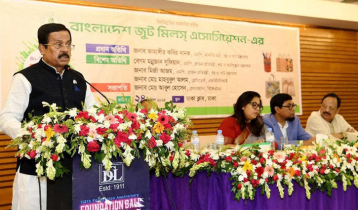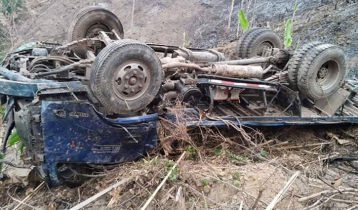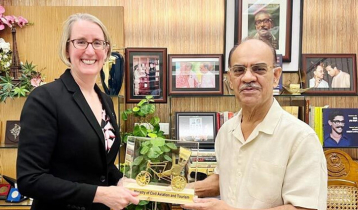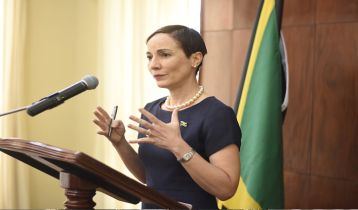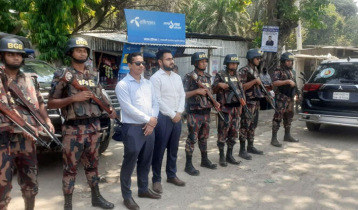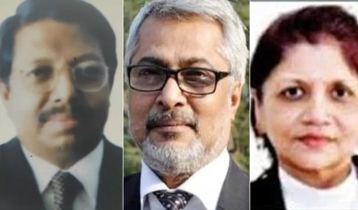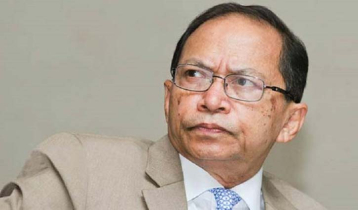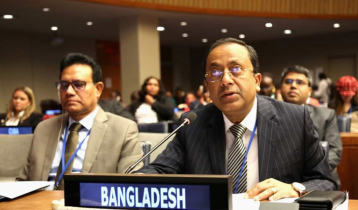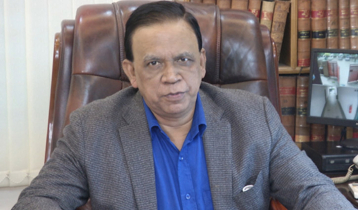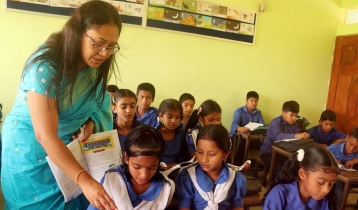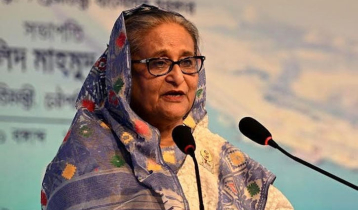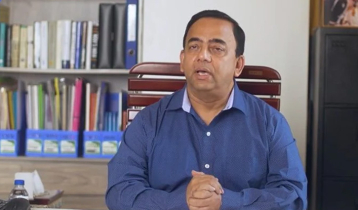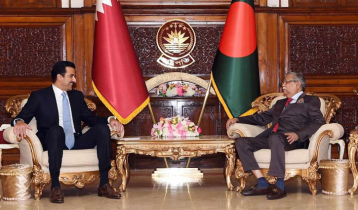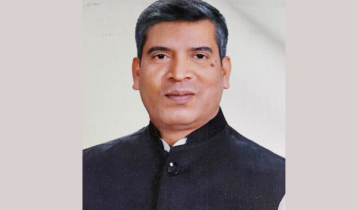Facebook & YouTube – underutilized teaching platforms
8 || risingbd.com
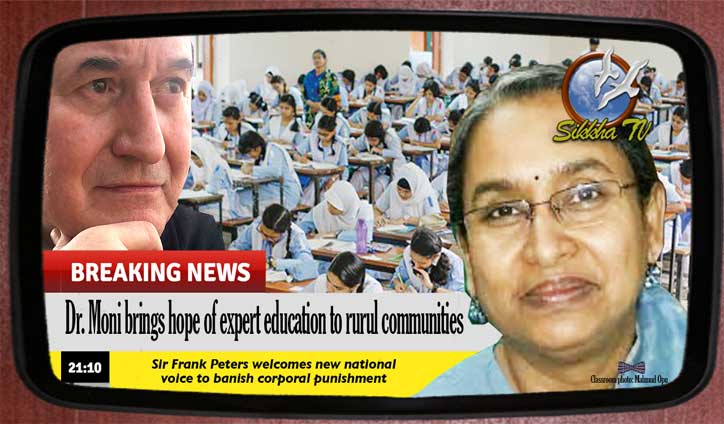
Sir Frank Peters: The recent announcement of a proposed new television channel dedicated exclusively to education is no doubt awe-inspiring.
The forward thinking of Education Minister Dr. Dipu Moni (may Allah always love her and give her the inner strength and wisdom to do what is best for Bangladesh) to some degree deserves the nation’s collective rapturous applause. The ambitious and noble plan, however, can be likened, with all due respect, to a jigsaw puzzle that has some pieces missing.
The learned lady pointed out there are a large number schools in rural areas that would benefit greatly from the teaching of “qualified and expert teachers”, but there are too few such teachers in the nation. That is a fact.
There’s no doubt television can be a vital and useful tool used to reach mass audiences and at a relative low cost, but for the concept to work effectively it requires electronic devices in abundance to receive the transmission and an uninterrupted electricity supply.
Irrespective who the star may be of any TV broadcast, without electricity the show simply doesn’t go on air.
There’s no point in going to all the expense of making high quality programmes (however good their intent or how beneficial they would be) if the people cannot actually view them.
That brings to the surface another dilemma. Let’s assume the electricity isn’t the problem as it is now. One then has to ask how many people in rural districts actually own television sets or receiving devices. At a guess I would say very few.
Many rural families who work hard and are struggling to make ends meet at the best of times would consider a TV set, laptop or smart phone a luxury and one the majority of families just cannot afford. Apart from the backbreaking purchase cost of the TV set, there’s the installation and the on-going monthly line rental fee.
Special arrangements
It’s been suggested that schools can make special arrangements for the telecasts that headmasters, teachers, and pupils can view and learn from.
Somehow or other I find it hard to imagine 100 pupils (more or less) sitting around a 20”-TV set in total silence, with their eyes and ears glued to the electronic box. Even if there were one TV set per classroom.
Fortunately, the villages in the country where electricity has not reached are becoming less. Uninterrupted electricity itself, however, has yet to be guaranteed to those connected to the power grid. This could result in some schools (and pupils) not benefitting from the ‘qualified and expert teaching’ intended. A hit and miss situation is generated by the unequal playing field, which should not be the case. Quality education should be available to all and is much too valuable for ‘hit and miss’ game playing.
While the concept of a TV channel dedicated exclusively to the advancement of education is most noble, I’m wondering if the honourable Education Minister has considered shelving the expensive grandiose idea and considered using the electronic communications’ facilities that already exist and admirably blanket the entire nation… and beyond.
I’m referring to YouTube, Facebook and other social media platforms. They offer far greater benefits than any new or existing TV station ever could and at a fraction of the cost and needed infrastructure. It’s simply a matter of understanding and harnessing the vast opportunities they provide.
Let’s do a quick comparison... TV transmissions in general require live viewing audiences. If the transmission is missed because of power shortage to the area (or whatever), hard luck… the opportunity may be gone forever, unless the transmission is repeated or the owner also has a recording device… but even if/when repeated there are no guarantees the same problem would not re-occur.
Load shedding is the death of all television broadcasts, good or bad, and load shedding is without prejudice.
YouTube and Facebook, on the other hand, are there for viewing 24/7/365. A pupil can watch the tutorial video when the opportunity presents and even download it for later viewing. The pupil has the option to PLAY it in his/her home, on the bus – wherever he or she chooses. If s/he can’t quite understand what the teacher has said he/she can PAUSE the tutorial and REPLAY over-and-over-and-over again until it sinks in, and they know exactly what the expert teacher means. It’s like a pupil having his/her own Professor by their side and tutoring one-on-one.
Reaching the masses with expert teaching is most noble and I humbly bow to Dr. Dipu Moni for her initiative. To achieve the desired success, however, I feel there are many problems surrounding the project that need to be addressed prior.
Bangladesh needs to move forward with the times. TV stations are remnants of a middle-aged generation by-gone era (as were cylinder recordings, music cassettes, 78, 45 and 33-rpm gramophone records. Even DVDs have a near use-by date). Bangladesh is cluttered with TV stations that are starving and thirsting for advertising financial support.
A new TV channel, however good its intent, would be hitching its expensive cart to an already dying era that’s alien to the worlds of the new vibrant generation of Bangladesh youth who are embracing new technology and modernizing the ways of communications, whether we like it or not.
More importantly before any TV Channel, Facebook or YouTube can work to its full potential; pupils need the facilities (computers, tablets, smart phones) that will enable them to access them.
If the tutorials cannot be accessed, there’s no point in making and broadcasting them.
I also have reservations about “qualified and expert teachers”. A classroom ‘expert teacher’ could be drab and boring on TV… an absolute total flop.
Presentation
Presenters need to be people who can present the subjects in an entertaining, perhaps humorous way that’s full of life, enthusiasm and are a joy to listen to and watch. They don’t necessarily have to be experts in the subjects, just deliver from the expert prepared scripts, as an actor would.
Presentation is the secret key to the success of this mission and that applies to those in front of and behind the cameras. Just plonking a “qualified and expert teacher” in front of a TV camera and telling them to deliver, just would not work.
A teacher’s task is to foster learning which is best done in a happy, fun-place-to-be environment and the greatest gift any teacher can give a student is encouragement, appreciation, respect and under no circumstances to belittle their efforts.
In every stage of their development, children should be encouraged and motivated to think and act positively in all that they do and no space be given in their precious minds to harbouring negative, worthless, self-destructive thoughts.
Good education, undoubtedly, is the best investment any government can make. It is the noblest gift it can give to its people that’s loyal, never falters or fails, produces incalculable dividends for eternity, and it benefits all.
Any assistance given to increase the quality of education should be welcomed. Good luck to Education Minister Dr. Dipu Moni in her noble pursuit.
(Sir Frank Peters is a former newspaper and magazine publisher and editor, a royal goodwill ambassador, humanitarian, and a respected foreign non-political friend of Bangladesh. He designed an awe-inspiring poster in tribute to Bangabandhu that is seen by many to be the Proclamation of Bangladesh. Three Bangladeshi babies have been named ‘Frank Peters’ in his honour.)
Dhaka/ Sir Frank Peters/Nasim
risingbd.com










